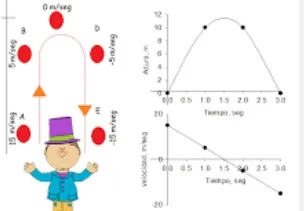What is the word classification?
What is the word classification?
In the case of the word ‘ está ‘, the stressed syllable is understood more easily, since the word is classified as oxytone. Therefore, the stressed syllable is the second, ending in ‘a’ – which justifies the very possibility of placing the graphic accent.
Where is meaning?
How to use Onde?
Where: Indicates the place where something or someone is. “Where” is used with verbs that indicate permanence, that is, absence of movement. For example: “I know the place where you found it.” The verb “find” does not indicate movement.
When to use where to where by where from where to where?
While “where” expresses the idea of a place that is stationary, “where” is used when heading towards the reference location, that is, it translates the idea of movement. “Where” should be used in situations in which the subject is on the way to or returning from a certain location.
What is the difference between where and where?
The word “where” is used to refer to a place, the equivalent of “in which”. “Aonde” is the combination of the preposition “a” with the adverb or relative pronoun “where”. … Thus, the term “where” can only be used when accompanied by another term that requires the preposition “a”, as in the phrase: “I’m going wherever you go”.
Where is the difference between exercises?
Where do I want to be or are I?
The correct way to write it is : ” Where I wanted to be “.
Where is the adverb of place?
Let’s see: Firstly, the adverb “where” occurs with the circumstantial value of place. This means that it can only be used to indicate place: Being somewhere, going somewhere, coming from somewhere.
How do you spell the word where?
Where or where will we end up?
The correct way to construct a sentence to express what you want in this case is ” Where are we going to stop ?. The term ” aonde ” is a union between the preposition “a”, in the sense of “until”, and the adverb ” where “. Therefore, we only use it in situations that require expression of movement.
How to see if a sentence is correct?
One of the pillars of grammar is spelling. For example: the right thing to do is “follow us”, not “cigar us”. The word orthography has Greek origins: “ortho” means “ correct ; “graph” means writing. Therefore, the spelling is the correct writing .
What are the 4 types of whys for?
What do the 4 whys mean?
The correct sequence for filling in the blanks is: “ because ” (because), “ whys ” (noun), “por que” (for what reason) and “why” (for what reason), at the end of a sentence, before a sign question mark).
What is the difference between the whys?
Why: It should only be used at the end of the sentence, having the same meaning as why. Because: Conjunction used to explain or show the cause of something mentioned previously. Equivalent to therefore, since. Why: Masculine noun.
Why are there 4 types of whys?
1) General rule: Whenever it is possible to replace “ because ” and “ why ” with the expressions: why , for what reason, for which, by which, by which, whereby, it is written separately.
Why because Why is it because there are the four types of why whenever there is a need?
because because because because are the four types of because whenever there is a need to use because the first concern should be to find out what function it will perform and why it can be used in interrogative sentences it can introduce an explanatory coordinated clause it can introduce a clause subordinate…
When is ha used?
We must use ” there ” when the verb to exist is impersonal – without a subject – and its meaning is to exist. The ” há ” represents a form of the verb to exist. If doubt arises between está or a, ” há ” should be used when the verb estar assumes the meaning of existing.
What is the why answer?
At the beginning of a sentence, “ because ” never has an accent, no matter the content of the sentence. If the sentence is a question and “ por que ” comes at the beginning, you will use “ por que ” separately and without an accent. … If the sentence is a response and “ because ” comes at the beginning, you will use “ because ” together and without an accent.
When is why used?
- Because , together and without an accent, is used mainly in response sentences and/or explanations. …
- Why, together and with an accent, is used when it is intended to indicate a motive, reason or cause. …
- Why, separately and without an accent, is used at the beginning of a question or to relate to a previous term.
What is the justification?
The “ because ” together is a conjunction that indicates cause, reason, justification or explanation. An example: “I didn’t go because I was sick.” According to the teacher, ” Because he was sick” is the prayer that indicates the reason why he didn’t go. In these cases, the “ because ” is together and without an accent.
What is the why used at the end of the sentence?
We use WHY (separately and with a caret) at the end of sentences that have only one period ( final , interrogative, exclamatory,…)… We use WHY (together and with a caret) when this word is used as a noun and is preceded by article.
Am I happy because I got a good grade?
I was happy because I got a good grade . I was happy because I got a good grade . I was happy once I got a good grade . I was happy because I got a good grade .
Because in the question is it together or separately?
Because ( with and without an accent) is mainly used in answers and explanations. Indicates the cause or explanation of something.
Why question?
The word WHY (separate and without accent) is used at the beginning of sentences that indicate questions. It therefore introduces a question . … The word BECAUSE (together and without an accent) highlights the idea of cause. It corresponds to once, since and therefore.

